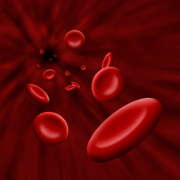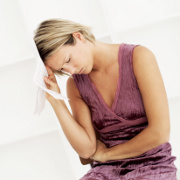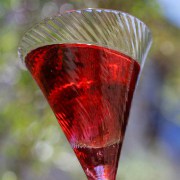Can a capsaicin-rich diet prevent peptic ulcers? It has been a widely held belief that people who have been diagnosed with peptic ulcers should avoid spicy foods in their diets. However, new research challenges this advice and suggests that capsaicin, which is the chemical source of the heat in chilies, with the highest concentration found in the white pith around the seeds, may protect the gastric mucosal membrane against damage caused by alcohol and aspirin ingestion.
Jin Y. Lang, MD of National University of Singapore, and his colleagues published the results of their research, which analyzed the gastro-protective effect of intragastric and subcutaneous (beneath the skin) administration of 2 mg of capsaicin on laboratory rats. The intragastric and subcutaneous doses of capsaicin were equivalent to 200 mg in single doses or a 200 mg daily dose for 4 weeks consumed by humans. Ethanol (component in alcoholic beverages) induced gastric mucosal injury was carried out on the test subjects. The researchers found that both the mucosa and gastric juices had higher mucus content when capsaicin rather than saline (salt containing solution) was given prior to the ethanol challenge. They concluded that the result of increased gastric mucus production could be one mechanism by which capsaicin protects or capsaicin could produce a reduction in mucosal mucus depletion. (1)
For application to humans, the research needed to come out of the laboratory and into the general public. "Gastroprotection Induced by Capsaicin in Healthy Subjects" is an article which supports Dr. Lang's findings that capsaicin has protective benefits, but Gyula Mozsik et al propose another mechanism. Mozsik chose 84 healthy individuals who were given small doses, 100 ml of capsaicin prior to the introduction of an ethanol induced gastric injury. Evidence indicated capsaicin, ingested in low concentration, protects against gastric injuries, which are ethanol induced. This team attributes the protective property to the stimulation of the sensory nerve endings. (2)
Dr. Lang also took his research out of the laboratory and into the field. He hypothesized that capsaicin might stimulate a hormone that increases blood flow and nourishes the gastric mucosal membrane. His attention was drawn to the disparity in the number of peptic ulcers diagnosed among the Chinese and the Malay and the Indian residents of Singapore. He proposed that the high rate of ulcers among the Chinese was the result of the relatively low chili consumption. The case subjects included 103 patients with peptic ulcers and 87 ulcer-free patients. The ulcer-free Chinese patients consumed chilies 24 times per month compared to the ulcer-diagnosed Chinese patients, who consumed chilies 8 times per month. (3)
(1) Effect of Capsaicin and Chili on Ethanol Induced Gastric Mucosal Injury in the Rat
Jin Y. Lang, MD, C.H. Teng, A. Wee, F.C. Chen GUT May 1995
(2) Gastroprotection Induced by Capsaicin in Healthy Subjects
Gyula Mozsik, Janos Szolcsanyl, Istran Racz
World Journal of Gastroenteroloy September 7, 2005
(3) Chili-protective Factor Against Peptic Ulcer
Jin Y. Lang, MD Digestive Disease and Science March 1995
Maryann Gromisch is a registered nurse with clinical experience in the areas of medical, surgical, and critical care. She has worked with a gastroenterologist in a private practice setting.






Add a CommentComments
There are no comments yet. Be the first one and get the conversation started!